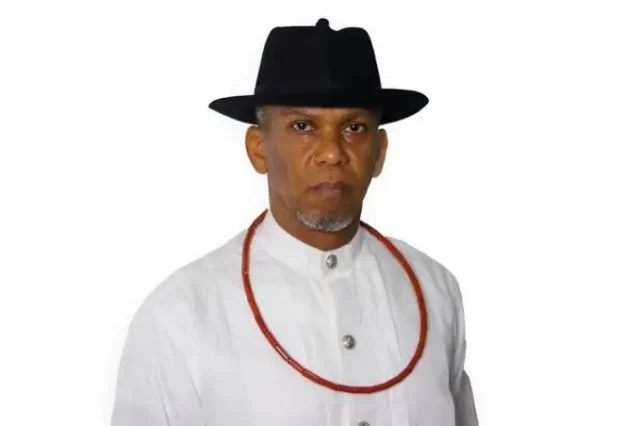By Chidi Chukwutem
The recent statement from the Ukwuani Social Improvements League (USIL), signed by its president, Chidi Onyechuku Uwabuofu, takes issue with Senator Ned Nwoko’s comment on Channels TV that “the Ukwuani people are Igbos.” While the concerns raised deserve attention, the response unfortunately leans more on emotion than on historical and linguistic facts.
Senator Nwoko’s remarks should not be seen as an attempt to erase Ukwuani identity, but as a reflection of a well-established historical and ethnolinguistic reality: that the Ukwuani people, alongside other Anioma groups, share common cultural roots with the Igbo people.
The Historical and Linguistic Connection Cannot Be Denied
The argument that “Ukwuani are not Igbo” ignores centuries of anthropological, linguistic, and cultural evidence. Multiple academic studies — including works by celebrated Nigerian historians and linguists like Prof. Elizabeth Isichei, Prof. Don Ohadike, and Dr. Nzemeke, have documented that the Ukwuani language belongs to the Igboid branch of the Niger-Congo language family.
Ukwuani, Enuani, and Ndokwa dialects are all recognized Igboid languages. That does not erase their unique local evolution, just as Nsukka, Ngwa, or Arochukwu people are distinct within the Igbo nation, yet remain Igbo.
Identity in Nigeria is layered: ethnic, linguistic, cultural, and political. Recognizing Ukwuani as part of the wider Igbo ethnolinguistic family does not threaten their individuality. Rather, it acknowledges the deep interconnectedness of the Anioma peoples.
The Civil War Argument Is Historically Weak
The claim that “the Nigerian Army built barracks in Ukwuani land, therefore we are not Igbo” is historically and logically weak. Wartime military strategy was based on geography, not ethnicity. The federal troops also had bases in parts of the Middle Belt, Yoruba areas, and even in non-Biafran Igbo communities that were occupied early in the war.
That the Ukwuani people helped Igbo refugees speaks not to ethnic separation, but to shared humanity and kinship. Many Anioma and Igbo communities helped one another survive the horrors of the Civil War. Compassion does not require disowning shared heritage.
Cultural Similarities Are Not Coincidental
Ukwuani customs, from marriage rites, language structure, titles, to traditional music, bear undeniable resemblance to those of Igbo subgroups across the Niger. This is not a coincidence, nor the result of “mere similarity.” It is evidence of common ancestry that predates colonial boundaries and the political redefinitions that came with them.
Ned Nwoko’s Intent: Unity, Not Division
It is disingenuous to accuse Senator Nwoko of “rewriting history for ambition.” His call for Anioma statehood is grounded in the belief that the Anioma people, including Ukwuani, Enuani, and Ika, share both a geographic and cultural affinity that merits political recognition.
By situating Ukwuani within the Igbo family, he does not seek to erase their identity but to anchor it within a broader, historically consistent narrative. Just as Urhobo, Itsekiri, and Isoko people are distinct but share roots within the Delta cultural mosaic, the Ukwuani people can be both uniquely Ukwuani and proudly Igboid.
Identity Should Not Be Politicized
Identity is complex and should be approached with scholarship, not sentiment. The true danger lies not in Nwoko’s statement but in the tendency to politicize cultural heritage for short-term populism. A people’s dignity is not diminished by their connection to others, it is strengthened by it.
Rather than threaten recalls or resort to divisive rhetoric, stakeholders in Anioma land should focus on issues that genuinely affect their people: development, education, infrastructure, and empowerment.
Senator Ned Nwoko’s statement aligns with historical and linguistic truth. The Ukwuani people are a proud, distinct subgroup within the larger Igbo family, not outsiders to it. Acknowledging this, does not erase their uniqueness, it simply places them where history, language, and culture already have.
The task before all Anioma leaders is to unite, not divide; to embrace shared heritage while celebrating diversity. Our differences make us unique, but our connections make us strong.
Chidi Chukwutem writes from Asaba






















